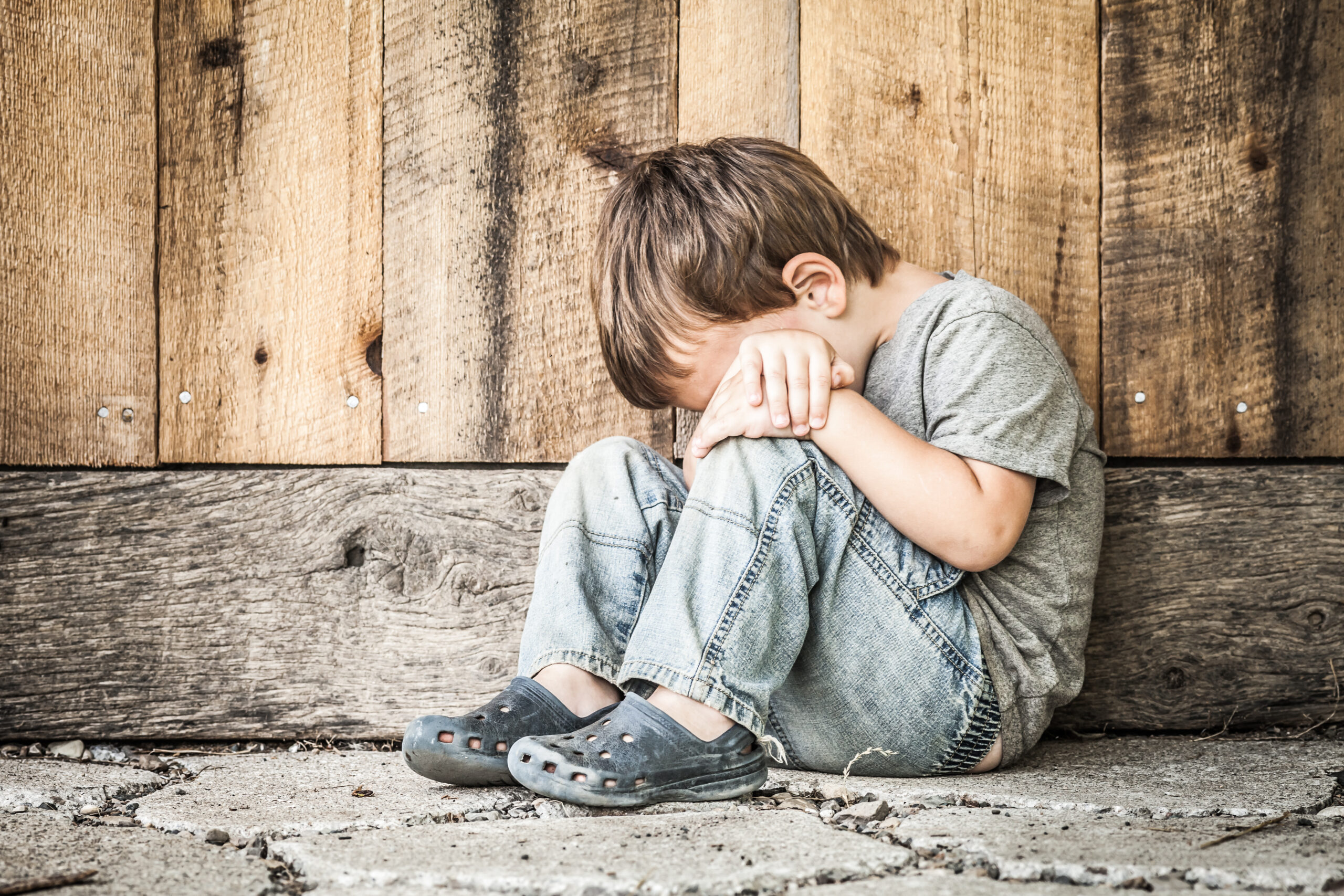
AdobeStock by Philip Steury
<h2><span data-contrast="auto">Around 75 percent of children with a severe mental health disorder aren’t receiving support, estimates The Royal Australian and New Zealand College of Psychiatrists (RANZCP).</span><span data-ccp-props="{";201341983";:0,";335559739";:160,";335559740";:259}"> </span></h2>
<p><span data-contrast="auto">Professor Valsa Eapen, chair of the Faculty of Child and Adolescent Psychiatry said “Too many children in need of professional mental health support are missing out and that includes preschool children and parents or caregivers supporting them.&#8221;</span></p>
<p><b>Read the Term 1 edition of <i>School News</i> <a href="https://www.schoolnews.co.nz/latest-print-issue/" target="_blank" rel="noopener noreferrer" data-auth="NotApplicable" data-safelink="true" data-linkindex="0">HERE.</a></b></p>
<p><span data-contrast="auto">&#8220;The pandemic has made an already bad situation worse and our children can’t wait. The time is right now.” </span><span data-ccp-props="{";201341983";:0,";335559739";:160,";335559740";:259}"> </span></p>
<p><span data-contrast="auto">The statement from the RANZCP came ahead of the Australian Federal Government’s National Early Years Strategy and Summit, which was held earlier this year on February 17. Eapen said that it was crucial that governments create actionable plans to support citizens in the first five years of life. </span><span data-ccp-props="{";201341983";:0,";335559739";:160,";335559740";:259}"> </span></p>
<blockquote>
<p><span data-contrast="auto">“Most adult mental health problems have their origins in childhood and adolescence, with children affected by parental mental illness being at particularly high risk.”</span><span data-ccp-props="{";201341983";:0,";335559739";:160,";335559740";:259}"> </span></p>
</blockquote>
<p><span data-contrast="auto">Eapen also urged the Australian Federal Government to increase funding for mental health support services. </span><span data-ccp-props="{";201341983";:0,";335559739";:160,";335559740";:259}"> </span></p>
<p><span data-contrast="auto">Meanwhile, the New Zealand childhood mental health services have been described as reaching “</span><a href="https://www.nzherald.co.nz/nz/great-minds-childrens-mental-health-services-at-crisis-point-as-demand-surges-and-staff-depart/AKTYW7B4AAEL34QJ6L3H76VGZE/" target="_blank"><span data-contrast="none">crisis point</span></a><span data-contrast="auto">”. In 2021, the child and adolescent mental health services saw around 51,000 patients, stretching the limits of the service’s capacity. </span><span data-ccp-props="{";201341983";:0,";335559739";:160,";335559740";:259}"> </span></p>
<p><span data-contrast="auto">An investigation conducted by the Herald in 2022 found “services across the country have struggled to provide an adequate level of care, putting patients at risk and causing staff to burn out”. Issues such as depression, anxiety, self-harm and eating disorders were found to be amplified by the pandemic. Having been under-resourced for several years, the service found itself struggling to respond to growing need. The Herald found that some DHBs had clinicians with double the safe workload. </span><span data-ccp-props="{";201341983";:0,";335559739";:160,";335559740";:259}"> </span></p>
<figure id="attachment_25895" aria-describedby="caption-attachment-25895" style="width: 2560px" class="wp-caption alignnone"><img class="size-full wp-image-25895" src="https://www.schoolnews.co.nz/wp-content/uploads/2023/05/AdobeStock_284138417-scaled.jpeg" alt="" width="2560" height="1506" /><figcaption id="caption-attachment-25895" class="wp-caption-text">Mental health services are being stretched to their limit, turning away vulnerable patients. Photo: AdobeStock by Prot.</figcaption></figure>
<p><span data-contrast="auto">In New Zealand, the response has been to increase the threshold of acceptance, meaning vulnerable individuals are turned away. A specialist team for rangatahi Māori was in an even worse state, the investigation found. </span><span data-ccp-props="{";201341983";:0,";335559739";:160,";335559740";:259}"> </span></p>
<p><span data-contrast="auto">As of 2022, youth mental health services received only $3600 per patient, while adult services received $5800 of funding per patient. Although Labour increased funding in 2021, psychiatrists are worried that this won’t be enough to keep up with rising demand. </span><span data-ccp-props="{";201341983";:0,";335559739";:160,";335559740";:259}"> </span></p>
<p><span data-contrast="auto">In New Zealand, it is unknown what percentage of caseloads fall in the under 5s category. </span><span data-ccp-props="{";201341983";:0,";335559739";:160,";335559740";:259}"> </span></p>
<p><i><span data-contrast="auto">If you or anyone you know is affected by mental illness 1737 is here to help, for free. You can also contact Lifeline NZ on 0800 543 354 or </span></i><a href="http://www.lifeline.org.nz/" target="_blank"><i><span data-contrast="none">www.lifeline.org.nz</span></i></a><i><span data-contrast="auto"> or the Suicide Crisis Helpline on 0508 828 865 or </span></i><a href="http://www.lifeline.org.nz/suicide-prevention" target="_blank"><i><span data-contrast="none">www.lifeline.org.nz/suicide-prevention</span></i></a><i><span data-contrast="auto">.</span></i><span data-ccp-props="{";201341983";:0,";335559739";:160,";335559740";:259}"> </span></p>

Professional learning and development (PLD) for teachers needs to be higher impact for teachers and…
Students displayed increasing AI literacy when explicitly asked to engage with the technology for their…
A new Government collective offer will be voted on by members of NZEI Te Riu…
New Zealand’s education system is a canvas of opportunity to inspire and empower every child.…
When done well, a wellbeing challenge can build habits that support wellbeing for life—and lays…
Te Akatea Inc., the National Māori Principals’ Association has released a discussion paper reflecting on…
This website uses cookies.